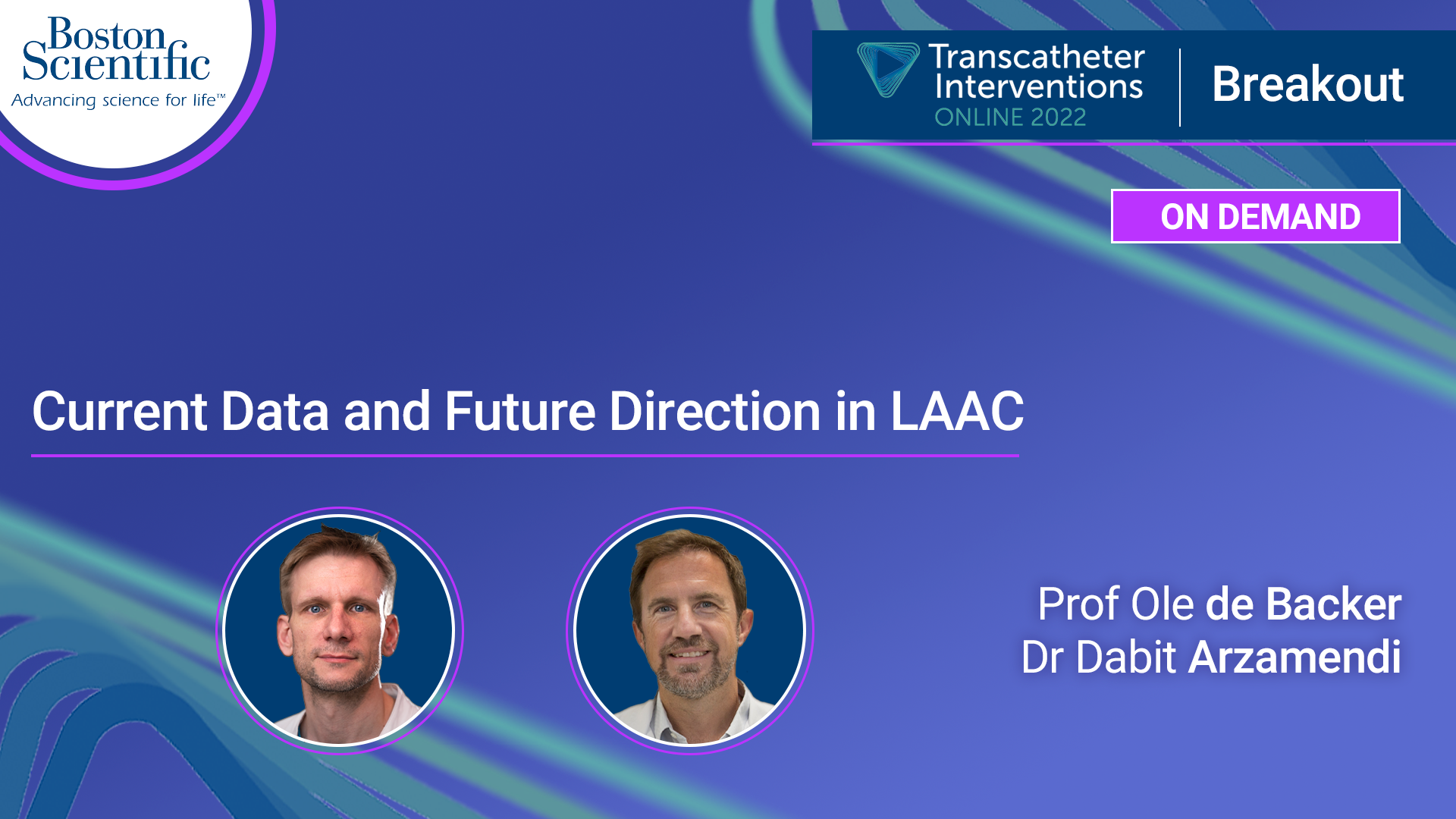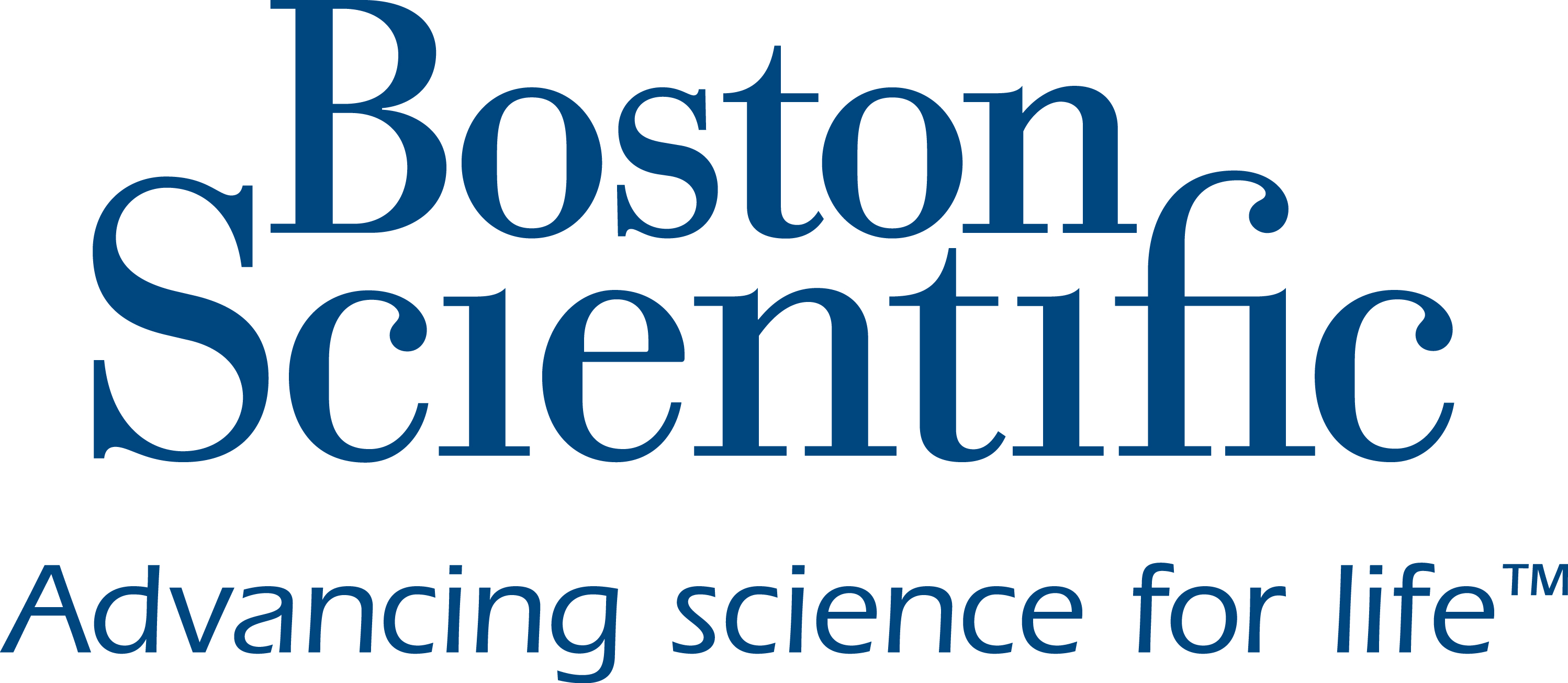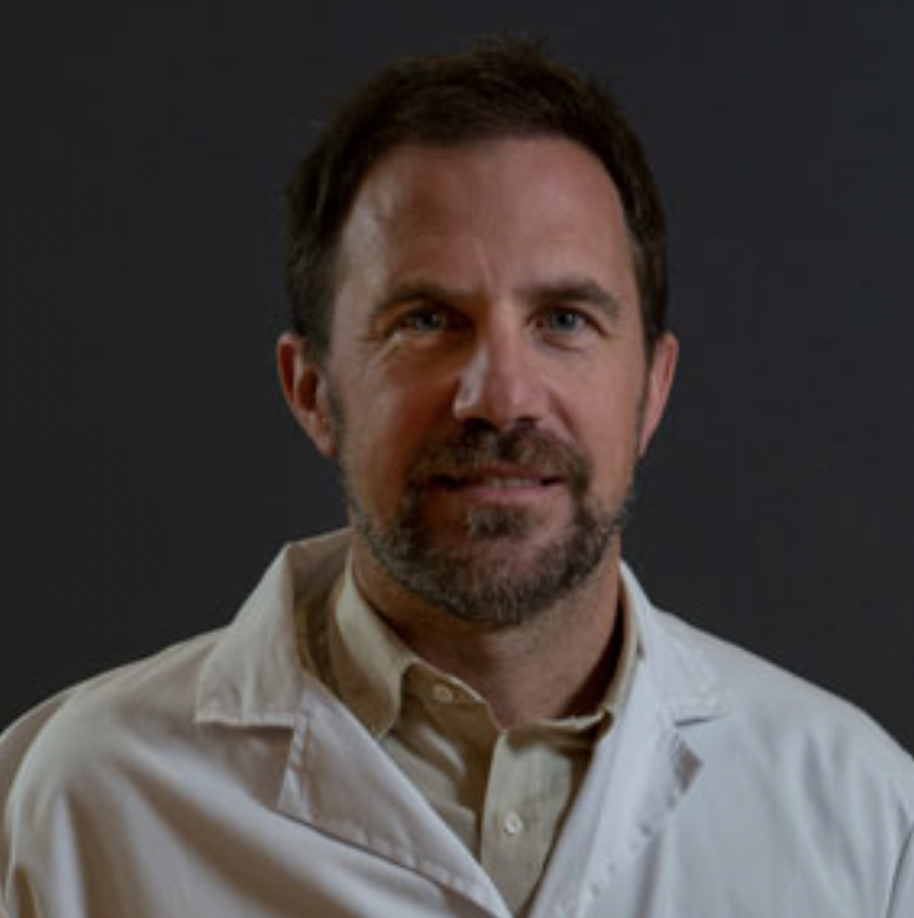Current Data and Future Direction in LAAC
Published: 08 April 2022
-
Views:
 1277
1277
-
Likes:
 7
7
-
Views:
 1277
1277
-
Likes:
 7
7
-
 Up Next
Up Next -
 15m 38sPart 1 | Session 3 Current Clinical Data and Future Needs
15m 38sPart 1 | Session 3 Current Clinical Data and Future Needs
-
 14m 7sPart 1 | Session 1 Streamlining the LAAC Procedure Dabit Arzamendi, Ole De Backer
14m 7sPart 1 | Session 1 Streamlining the LAAC Procedure Dabit Arzamendi, Ole De Backer
Overview
LAA closure (LAAC) is a proven alternative to oral anticoagulation for preventing stroke in patients with non-valvular AF.
Watch this TIO breakout, on-demand and join the panelists to discuss how to optimize the implant procedure and the implications of current and future trials on clinical practice, our experts will share with you their expertise, discussing their techniques and strategies in using the WATCHMAN FLX device.

Key Learning Objectives
- Learn how new imaging modalities (ICE, mini-micro TEE, CT) and workstreams could streamline the LAAC procedure and the patient follow-up
- Understand how the new implantation technique of WATCHMAN FLX can optimize procedural results
- Learn about the latest LAAC clinical data and the proven safety profile of WATCHMAN FLX
Target Audience
- Interventional Cardiologists
- Surgeons with an interest in transcatheter treatment strategies for coronary and structural heart disease
- Interventional Cardiology Nurses
More from this programme
Part 1
Streamlining the LAAC Procedure
Faculty Biographies

Dabit Arzamendi
Interventional cardiologist
Dr. Arzamendi is a Professor of the University of Barcelona and he is also member of the educational group of the European Association of Percutaneous Cardiovascular Interventions.
He is author of indexed publications in journals, and he has given more than 300 congress presentations and invited lectures over the world.

Ole De Backer
Interventional Cardiologist
Prof Ole De Backer is an internationally renowned interventional cardiologist working at Rigshospitalet, Copenhagen University Hospital, Denmark and is an expert in structural heart interventions – among others transcatheter heart valve interventions, percutaneous left atrial appendage closure and thoracic endovascular aortic repair. Special areas of interest are the development and adoption of a fully percutaneous, minimal invasive approach for different structural heart interventions and the use of advanced cardiac imaging tools for planning and guidance of these interventions. He is actively involved and leading several research projects in the field of transcatheter heart valves and percutaneous left atrial appendage closure.





